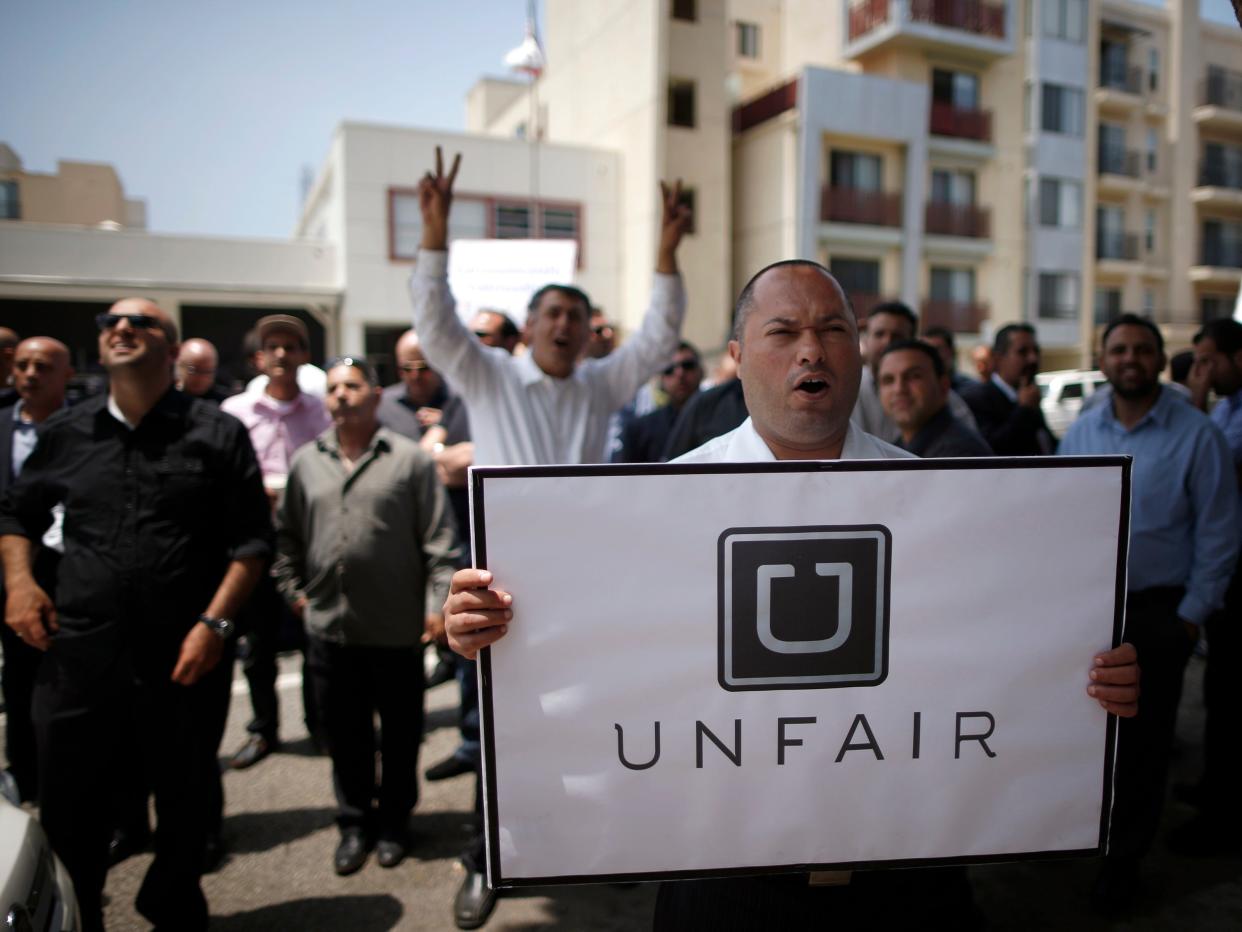A California judge ruled that Uber and Lyft have to classify their drivers as employees, not contractors

Lucy Nicholson/Reuters
Uber and Lyft will have to treat their California drivers as employees rather than independent contractors, a judge ruled Monday.
The two companies were sued by the California attorney general to enforce a new labor law passed earlier this year by the state that requires gig workers to receive the same benefits and treatment as employees.
Uber and Lyft both plan to appeal Monday's ruling. The companies have argued that reclassifying drivers as employees could wreak havoc on their businesses.
Uber and Lyft have to treat their California drivers as employees rather than independent contractors, a California judge ruled Monday.
The ruling, first reported by Bloomberg, would force the companies to provide legally mandated benefits, including health insurance and sick leave to drivers.
The California state legislature passed a law this year known as AB5 that requires gig-work employers to extend more benefits to workers. Both Uber and Lyft faced a lawsuit from California Attorney General to enforce the law after they denied that drivers classify as employees.
Several other California agencies joined that lawsuit against the two companies, arguing that they were "willfully misclassifying" drivers to avoid paying higher wages. Rideshare Drivers United, a driver advocacy group, claims that Uber and Lyft owe more than $1.3 billion in payments to drivers in California pursuant to AB5.
Driver advocacy groups that supported AB5 heralded Monday's ruling as a victory.
Related video: Experts says we’re decades from fully autonomous cars
"If the pandemic has shown anything, it's that all workers deserve affordable health insurance, paid sick leave, a minimum wage, overtime pay, and access to a social safety net. Today's ruling means Uber and Lyft must put an end to their lawless actions that deny benefits and protections to drivers who urgently need them," Uber driver Mekela Edwards, a member of driver advocacy group We Drive Progress, said in a statement to Business Insider.
The two companies plan to appeal the ruling, which they said would put a strain on their revenue and potentially force them to shut down their apps in the state. San Francisco Superior Court Judge Ethan Schulman paused the injunction on Monday's ruling for 10 days to give the companies time to appeal.
Californians will vote on a ballot initiative in November that would explicitly classify app-based drivers contractors rather than employees if passed.
In a statement to Business Insider, a Lyft spokesperson said the company believes that most drivers would prefer to be designated as independent contractors.
"Drivers do not want to be employees, full stop. We'll immediately appeal this ruling and continue to fight for their independence. Ultimately, we believe this issue will be decided by California voters and that they will side with drivers," the spokesperson said.
An Uber spokesperson said in a statement to Business Insider that the company plans to appeal the ruling.
"The vast majority of drivers want to work independently, and we've already made significant changes to our app to ensure that remains the case under California law. When over 3 million Californians are without a job, our elected leaders should be focused on creating work, not trying to shut down an entire industry during an economic depression," the Uber spokesperson said.
Uber CEO Dara Khosrowshahi has publicly acknowledged that drivers suffer from a lack of benefits, but asserts that drivers benefit from the flexibility afforded by independent contractor status. Khosrowshahi argued in a New York Times op-ed Monday that lawmakers should require gig work employers to provide some benefits to workers, but not the full benefits associated with employees.
"Our current employment system is outdated and unfair," Khosrowshahi wrote. "It forces every worker to choose between being an employee with more benefits but less flexibility, or an independent contractor with more flexibility but almost no safety net."
Read the original article on Business Insider

